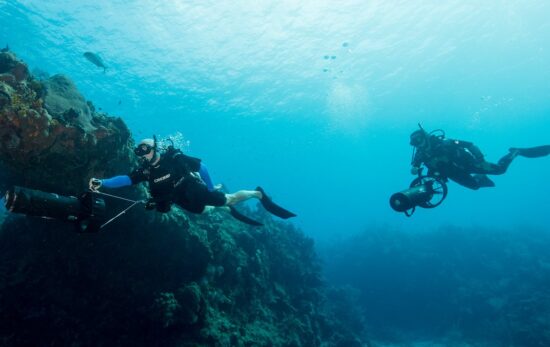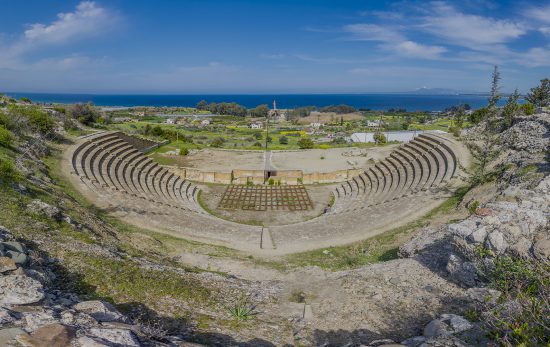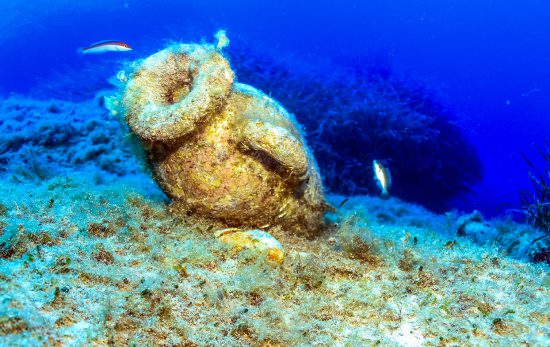By guest blogger Alexandra Dimitriou
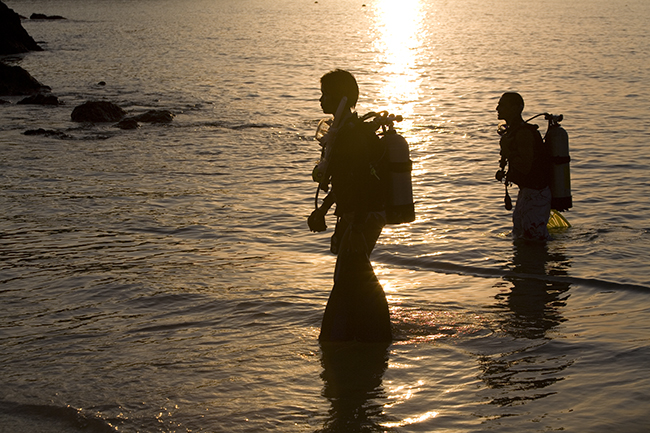
Night diving in Cyprus is so different to diving in the day. You either love it or you hate it. It’s the Marmite of scuba and it just happens that I adore both.
Night diving feels more intense, more concentrated and it’s way, way more fun. Your senses are more acute, you’re more aware of your surroundings and your torch makes your mind focus on a scene that is narrower and more detailed than it is in the day.
Cyprus’ underwater landscape is a rocky one, your torch casts shadows that contrast your portable pocketful full of sunshine with a moving eerie-ness. Colors are true, there is no loss beneath your beam and underwater photographers are in their element during a night diving in Cyprus.
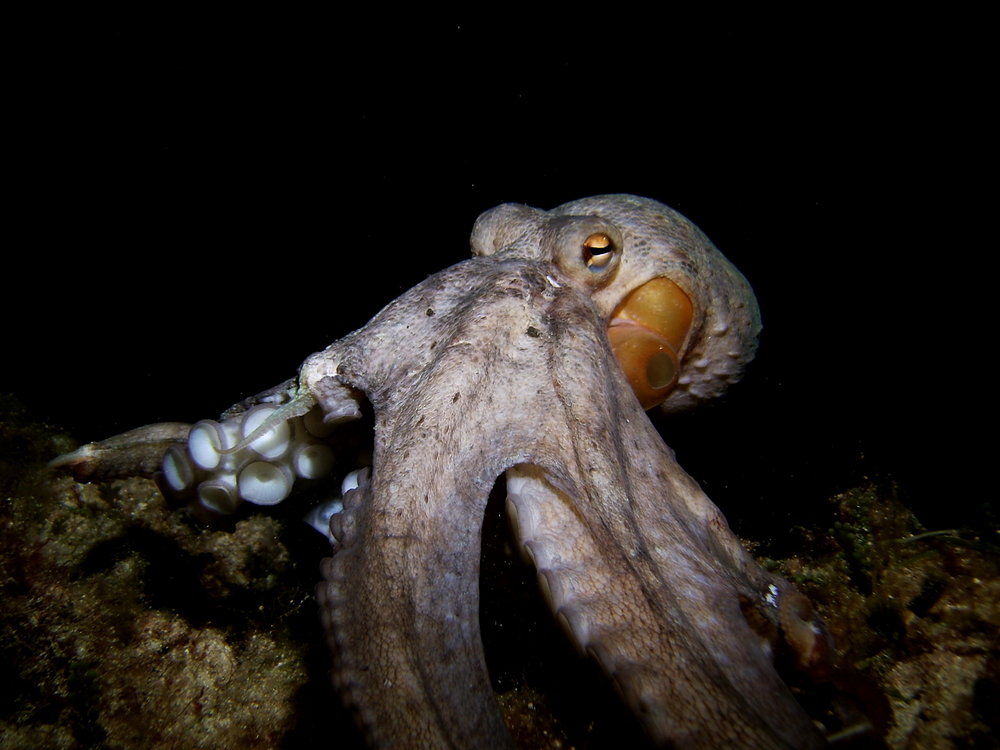
Cyprus is full of octopus and moray eels. As nocturnal creatures, they hunt at night and stop hiding themselves away. It’s a rare treat to see a moray out in the open, in all its glory from nose to tail slithering past you, but it’s more than likely on a night dive in Cyprus.
Bioluminescence is common here too and it is beautiful to simply wave your arms in front of your mask to agitate them into a stunning neon blue display that will fill you with wonder. I have enjoyed many a night dive hardly moving when I find d a patch of these shiny plankton. I just love playing with them! The new night dive mode on the GoPro Hero 5 is amazing for capturing these fleeting moments too. Very cool.
My favorite time to go night diving in Cyprus is during a full moon. Earth’s bright satellite penetrates beneath the waves and illuminates your dive site in a very different way. There may not be as much light as in the day, but a full moon allows us to see well enough without a torch. Turning your torch off for a while and letting your eyes adjust makes your dive site look like negative of a photograph – it transforms your whole experience!
If this post has left you wanting to learn more about our PADI Night Diver or Digital Underwater Photography specialties then follow the links to find out more. These courses can count towards your PADI Advanced open Water Diver or even PADI Master Scuba Diver qualifications.

